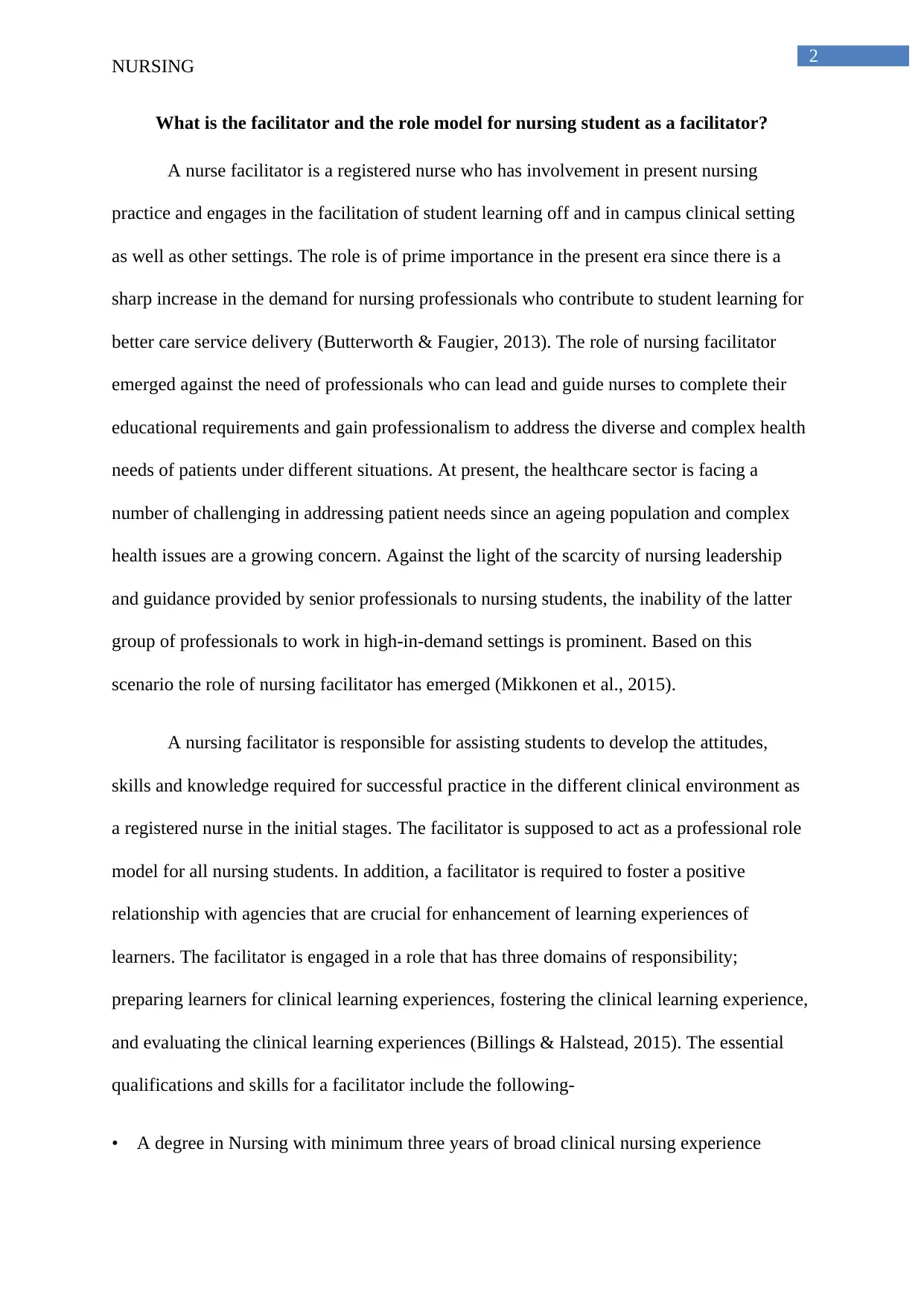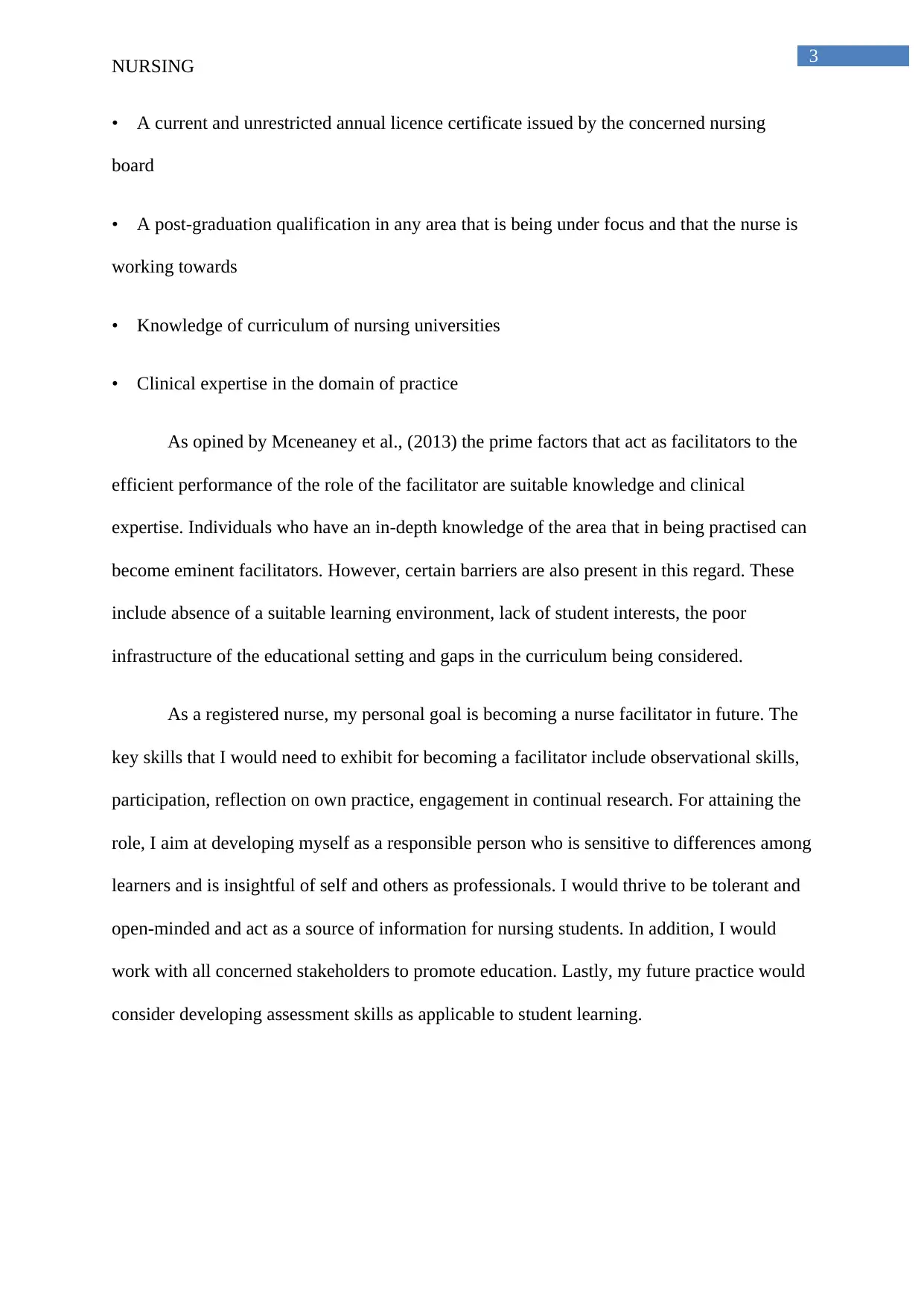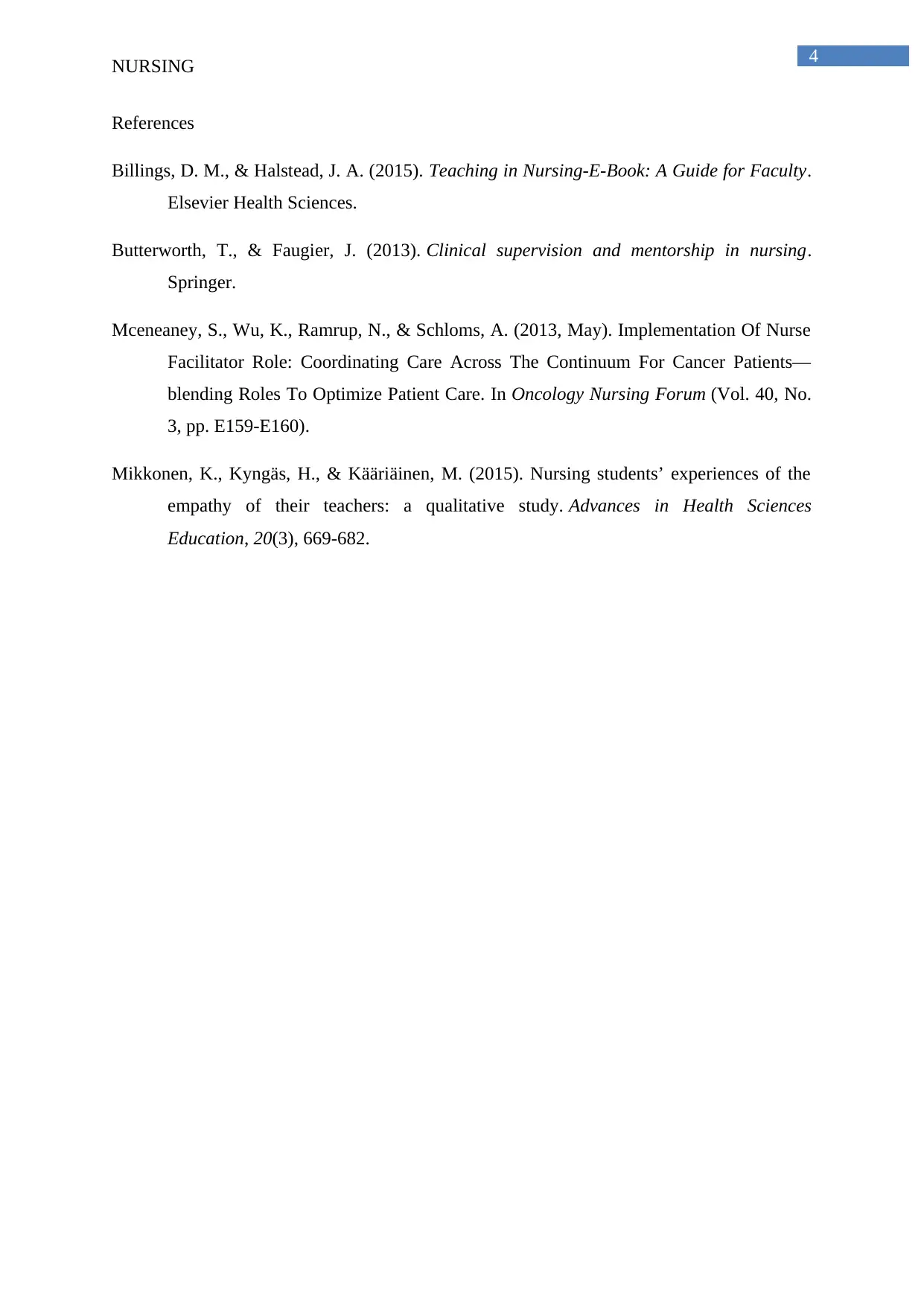Nursing Facilitator's Role: Facilitating Student Learning and Practice
VerifiedAdded on 2020/04/21
|4
|792
|176
Essay
AI Summary
This essay explores the vital role of a nursing facilitator in the healthcare sector, emphasizing their significance in student learning and the enhancement of nursing practice. The essay defines the responsibilities of a nursing facilitator, which include preparing students for clinical experiences, fostering a positive learning environment, and evaluating student performance. It highlights the necessary qualifications, such as a nursing degree, clinical experience, and specific skills like observational abilities and the capacity for continual research. The essay also discusses the barriers that may hinder a facilitator's performance, such as lack of resources and student interest. Furthermore, the author outlines their personal goals to become a nurse facilitator, emphasizing the importance of being a responsible, open-minded, and supportive mentor. The essay underscores the facilitator's role in addressing the evolving needs of the healthcare sector by guiding nursing students to meet the complex demands of patient care.
1 out of 4











![[object Object]](/_next/static/media/star-bottom.7253800d.svg)